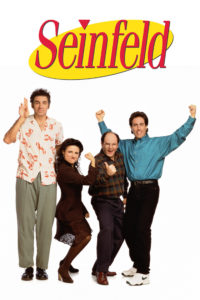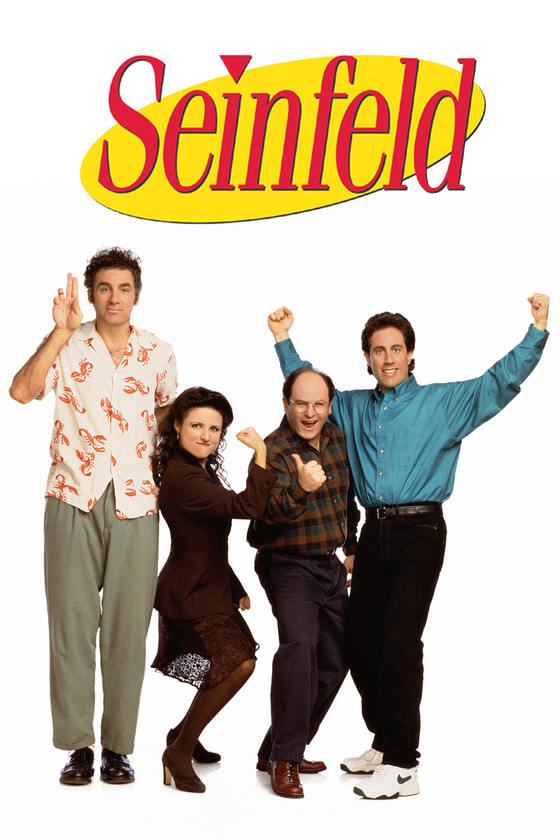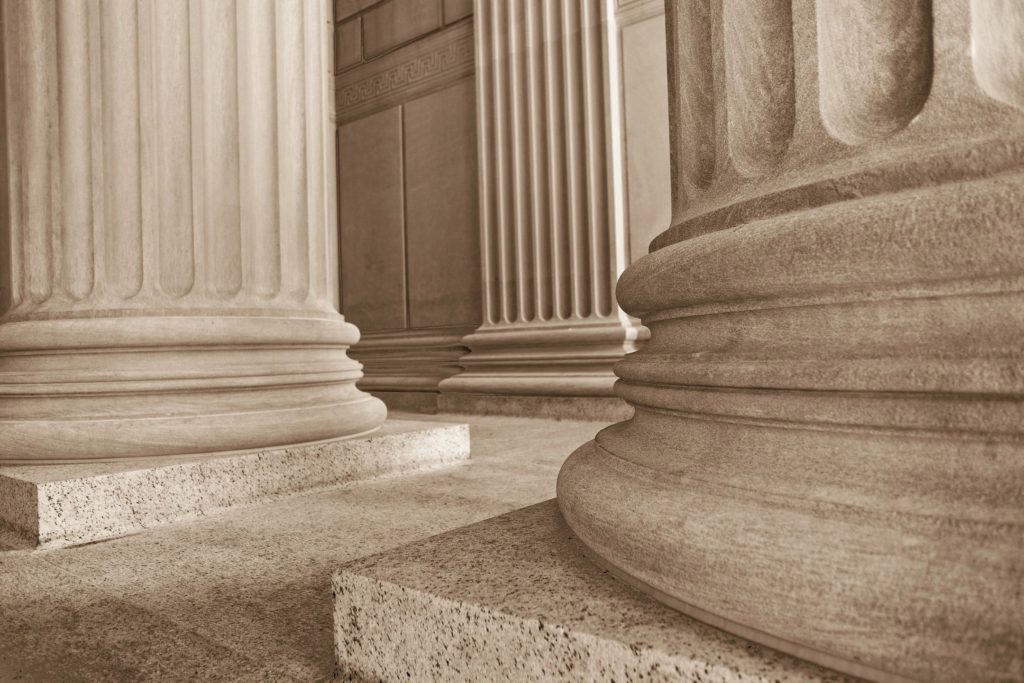By Nate Drum
From the very first day of law school, students are taught that every legal action can be placed into one of two distinct categories: civil cases and criminal cases. This distinction implicates everything from the substantive rights of the parties, to the rules of procedure, to which courts have jurisdiction to hear the case.[1] However, despite these fundamental differences, the distinction between civil and criminal is not always as clear as it first appears. While this is apparent in a number of different areas of the law, none is clearer than North Carolina’s complex and often contradictory case law governing contempt of court proceedings.[2]
A recent case heard by the North Carolina Court of Appeals, Grier v. Grier,[3] highlights such a case where the law surrounding contempt proceedings continued to blur the line between civil and criminal law. The issue presented was whether a party in a family law dispute (a civil proceeding) prosecuting a claim of criminal contempt of court (a criminal proceeding) could recover attorneys fees (civil penalty) as a sanction.[4] In other words: does the overarching essence of the case determine what remedies and penalties are available or does the specific substance of the proceeding control? For the time being, we are left without an answer.[5]
To understand this “nesting doll” dilemma, in which a party in a civil action initiates a criminal proceeding and seeks a civil remedy,[6] this article will provide a brief overview of the North Carolina rule governing the award of attorneys fees as a civil penalty, North Carolina laws governing criminal contempt proceedings, and a discussion about how these issues came together in Grier.[7]
Attorneys Fees Generally: A Civil Penalty
North Carolina follows the traditional “American Rule” regarding the award of attorneys fees,[8] holding that “a party can recover attorney[s] fees only if such a recovery is expressly authorized by statute.”[9] Such statutory authorization has typically been narrowly crafted to only apply in certain types of cases.[10] For example, N.C. Gen. Stat. § 50-13.6 authorizes the award of attorneys fees “[i]n an action or proceeding for the custody or support, or both, of a minor child . . . to an interested party acting in good faith who has insufficient means to defray the expense of the suit.”[11] While the overwhelming majority of statutes authorizing the award of attorneys fees in North Carolina are only applicable in the civil context,[12] there are circumstances in which a criminal defendant may be ordered to pay the costs of attorneys fees.[13] For example, N.C. Gen. Stat. § 7A-455 authorizes the court to order a criminal defendant to pay the reasonable attorneys fees incurred by appointed counsel.[14]
Yet, even when awarded in the context of defense of a criminal proceeding, the award of attorneys fees is quintessentially a civil remedy.[15] Rather than a criminal “punishment,” attorneys fees have typically been viewed by North Carolina courts as a civil penalty as most court-appointed attorneys fees are entered against criminal defendants in the form of a civil judgment.[16]
Criminal Contempt Proceedings Generally: A Criminal Proceeding
Black’s Law Dictionary defines contempt of court as follows: “The act of demeaning the court, preventig [sic] justice adminstration [sic], or disobeying a sentence of the court. It is [generally] criminal [in nature] and can lead to fines or imprisonment.”[17] However, North Carolina law surrounding contempt of court is somewhat more complicated than such a simple definition would lead one to believe.[18] For example, in North Carolina, contempt of court can be either civil in nature or criminal in nature.[19] What more, the overarching nature of the original action does not dictate the nature of the contempt proceeding.[20] For example, a criminal defendant can be held in civil contempt of court,[21] just as a civil defendant can be held in criminal contempt of court.[22] Further, a contemptnor defendant can be held in both criminal and civil contempt in the same proceeding, so long as each finding of contempt is based on separate and discrete conduct.[23]
However, determining whether a contempt proceeding is civil or criminal is of utmost importance for litigants because the nature of the proceeding will define the parties’ procedural and substantive rights (including what penalties can be imposed), the burden of proof required, and the right of appellate review.[24] Though, as North Carolina courts have repeatedly recognized, “the demarcation between [civil and criminal contempt] may be hazy at best.”[25] Therefore, North Carolina courts look to the purpose for which the proceeding was initiated, while considering the nature of the conduct being punished.[26] Generally, “[c]riminal contempt is imposed in order to preserve the court’s authority and to punish disobedience of its orders.”[27] Further, criminal contempt “is generally applied where the judgment is in punishment of an act already accomplished.”[28]
Upon a finding of criminal contempt, like all criminal statutes, the available penalties a trial court may impose are codified.[29] Generally, a criminal contemptnor can be punished via a judicial censure, a fine, and/or imprisonment for up to thirty days.[30] As noted in the statutory framework of the North Carolina general statutes, the provisions pertaining to criminal contempt were meant to preempt existing common law by providing a uniform and exclusive statutory scheme governing such proceedings.[31]
Criminal Contempt in the Family Law Context: A Civil Action
The interaction of North Carolina law governing attorneys fees and contempt of court collided in Grier v. Grier.[32] In this case, the contemptnor defendant, Mrs. Grier, was held in criminal contempt of court for violating the court’s child custody order.[33] As a result of the finding, the prosecuting party, Mr. Grier, sought an award of attorneys fees from Mrs. Grier under N.C. Gen. Stat. § 50-13.6.[34] Mrs. Grier challenged the award of attorneys fees as an improper remedy under the exclusive criminal contempt remedies enumerated at N.C. Gen. Stat. § 5A-12.[35] Ultimately, the question asked to the court was whether a party in a family law dispute (a civil proceeding) prosecuting a claim of criminal contempt of court (a criminal proceeding) could recover attorneys fees (civil penalty) as a sanction.
If the answer would be yes, how would that implicate the rule of lenity, holding that statutory ambiguity should be resolved in favor of the defendant? Would that mean that the remedies provided in N.C. Gen. Stat. § 5A-12 are not exclusive, despite language to the contrary?
If the answer is no, would that create a bright line rule that the substance of a proceeding overwrites the overarching essence of the case? Would that mean that the award of attorneys fees under N.C. Gen. Stat. § 50-13.6 would be limited only to those proceedings substantively connected to the custody proceeding and while excluding related disputes arising through the course of the litigation? Would it create perverse incentives for litigants to force their opposing party to permit a violation of court orders or to engage in the costly prosecution of criminal contempt proceedings without a monetary remedy?
Unfortunately, the court declined to answer.[36] While recognizing the challenging internal conflict within the laws, the court concluded that Mr. Grier did not meet the statutory requirements of N.C. Gen. Stat. § 50-13.6 which required that he have “insufficient means to defray the expense of the suit.”[37] Notably, the North Carolina Supreme Court has previously disposed of a similar case in which this exact question was raised on procedural grounds.[38] So, until a case arises which cannot be disposed of on unrelated grounds, the question of whether a party in a civil case, prosecuting a criminal contempt charge, can recover a civil remedy of attorneys fees remains open ended.
[1] Lawsuits, North Carolina Judicial Branch, https://www.nccourts.gov/help-topics/lawsuits-and-small-claims/lawsuits (explaining the difference between civil and criminal cases).
[2] See Spencer L. Blaylock Jr., Contempt of Court — Civil or Criminal, 36 N.C. L. Rev. 221, 223 (1956) (observing that “much confusion” has arisen regarding North Carolina’s contempt of court statutory framework and that it has been consistently “applied by the lower courts and attorneys” in improper ways).
[3] Grier v. Grier, No. COA 22-37, 2022 N.C. App. LEXIS 832 (N.C. Ct. App. Dec. 6, 2022).
[4] Id. at *P12.
[5] Id. at *P13 (concluding that the court “need not decide” whether the attorneys fee award was statutorily permissible).
[6] Id. at *P10 (noting that an order “directing a party to pay attorney[s] fees in the context of a criminal proceeding is itself civil in nature”).
[7] Id.
[8] Ehrenhaus v. Baker, 776 S.E.2d 699, 704 (N.C. Ct. App. 2015).
[9] Wadsworth v. Wadsworth, 868 S.E.2d 636, 644 (N.C. Ct. App. 2021).
[10] Sullivan v. Woody, 882 S.E.2d 707, 211 (N.C. Ct. App. 2022) (noting that fee shifting statutes should be narrowly construed).
[11] N.C. Gen. Stat. § 50-13.6 (2023).
[12] See Jim Gale, Awarding Attorneys’ Fees in North Carolina, UNC School of Government (2018 Superior Court Judges’ Summer Conference) (last visited Mar. 18, 2024), https://www.sog.unc.edu/sites/default/files/course_materials/09%20Attorneys%27%20Fees%20Awards%20in%20NC_Gale.pdf (listing all North Carolina statutes authorizing the award of attorneys fees).
[13] John Rubin, Are Attorney Fees’ Permissible?, UNC School of Government, https://www.sog.unc.edu/resources/faqs/are-attorneys%E2%80%99-fees-permissible
[14] N.C. Gen. Stat. § 7A-455(a) (2023).
[15] See Rubin, supra note 13.
[16] State v. Webb, 591 S.E.2d 505, 513 (N.C. 2004); see also State v. Jacobs, 648 S.E.2d 841, 842 (N.C. 2007) (noting that an order for attorneys fees, even in a criminal case, is a civil penalty).
[17] Contempt of Court, Black’s Law Dictionary(2d ed. 1910) (last visited Mar. 18, 2024), https://thelawdictionary.org/contempt-of-court/.
[18] See, e.g., State v. Wendorf, 852 S.E.2d 898, 902 (N.C. Ct. App. 2020) (noting that in addition to the differences between civil contempt and criminal contempt, North Carolina recognizes a difference between “direct” and “indirect” contempt).
[19] Bishop v. Bishop, 369 S.E.2d 106, 108 (N.C. Ct. App. 1988).
[20] See Id. (noting that the same conduct may be criminal contempt, civil contempt, or both, and that the nature and purpose of the court’s “punishment” will be determinative, rather than nature of the overarching case).
[21] NC Prosecutors’ Resource Online, UNC School of Government (last visited Mar. 18, 2024), https://ncpro.sog.unc.edu/manual/204-3#:~:text=A%20person%20may%20be%20held,to%20comply%20with%20that%20order.
[22] Michael Crowell, North Carolina Superior Court Judges’ Benchbook, UNC School of Government (last visited Mar. 18, 2024), https://benchbook.sog.unc.edu/judicial-administration-and-general-matters/contempt (noting that a party to a civil case, an attorney in a civil case, or even a witness in a civil case can be held in criminal contempt of court).
[23] See, e.g., Adams Creek Assocs. V. Davis, 652 S.E.2d 677, 687 (N.C. Ct. App. 2007) (holding a defendant in civil contempt for violating a court order and then separately held in criminal contempt for threatening a witness); see also N.C. Gen. Stat. §§ 5A-21(c), 5A-23(g) (2023) (prohibiting a defendant from being held in both criminal and civil contempt for the same conduct).
[24] See Hartsell v. Hartsell, 393 S.E.2d 570, 575 (N.C. Ct. App. 1990) (noting that civil contempt proceedings do not afford defendants the same procedural and substantive protections as criminal contempt proceedings); see also O’Briant v. O’Briant, 329 S.E.2d 370, 372 (N.C. 1985) (noting that criminal contempt proceedings trigger Constitutional safeguards applicable to all criminal proceedings).
[25] State v. Revels, 793 S.E.2d 744, 747 (N.C. Ct. App. 2016).
[26] O’Briant, 329 S.E.2d at 372.
[27] Id.
[28] Revels, 793 S.E.2d at 747.
[29] N.C. Gen. Stat. § 5A-12 (2023).
[30] Id.
[31] See, e.g., N.C. Gen. Stat. § 5A-11(a) (2023) (providing that the statutorily enumerated grounds for criminal contempt “are exclusive, regardless of any other grounds for criminal contempt which existed at common law”).
[32] Grier v. Grier, No. COA 22-37, 2022 N.C. App. LEXIS 832 (N.C. Ct. App. Dec. 6, 2022).
[33] Id. at *P4–P5.
[34] Id. at *P6.
[35] Id. at *P12.
[36] Id. at *P13.
[37] Id.
[38] Reynolds v. Reynolds, 569 S.E.2d 645, 646 (N.C. 2002).




